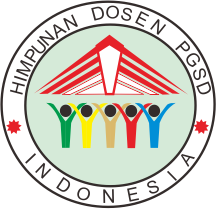PENERAPAN MODEL QUANTUM TEACHING UNTUK MENINGKATKAN KEMANDIRIAN DAN PRESTASI BELAJAR SISWA PADA MATA PELAJARAN MATEMATIKA MATERI KESEBANGUNAN DAN SIMETRI
DOI:
https://doi.org/10.30595/dinamika.v9i2.3864Keywords:
Independence, Academic achievement, Quantum Teaching modelsAbstract
Interviews and observations showed low learning achievement of independence and fifth-grade students of SD Negeri 2 Tinggarjaya, so this research aims to improve the independence and student achievement in the subjects of Mathematics material congruency and symmetry. This research is the subject of a class action that takes fifth-grade students with a number of 30 students consisting of 12 men and 18 women. This study uses a model of Quantum Teaching is carried out2cycles, each cycle consisting of 2 meetings. Each cycle consists of planning, implementation, observation/observation, and reflection. Based on the result obtained in the first cycle, students' independence as much as79,58% with both criteria and the second cycles much as89,18%, thus increasing the criterion very well, while the acquisition of student achievement obtained in the first cycle the average value of the class of 58,67 with passing grade is achieved only 60%. in the second cycle, the acquisition of student achievement obtained an average value of 89,25class with mastery learning reaches 88,9%. The collection of data through questionnaires and student evaluation sheet, Quantum Teaching shows that the model can improve the independence and student achievement in the subjects of Mathematics material congruency and symmetry.References
Arifin, Z. 2013. Evaluasi Pembelajaran Prinsip, Teknik, Prosedur. Bandung: PT Remaja Rosdakarya
DePorter. B.,dkk. 2003. Quantum Teaching mempraktikkan Quantum Learning di Ruang-ruang kelas. Bandung: Kaifa
Desmita. 2011. Psikologi Perkembangan Peserta Didik. Bandung: PT Remaja Rosdakarya
Elfindri, dkk. 2012. Pendidikan Karakter Kerangka, Metode, dan Aplikasi untuk Pendidikan dan Profesional. Jakarta: Baduose Media Jakarta.
Downloads
Published
How to Cite
Issue
Section
License
Authors who publish with this journal agree to the following terms:
Authors retain copyright and grant the journal right of first publication with the work simultaneously licensed under a Creative Commons Attribution License that allows others to share the work with an acknowledgement of the work's authorship and initial publication in this journal.
Authors are able to enter into separate, additional contractual arrangements for the non-exclusive distribution of the journal's published version of the work (e.g., post it to an institutional repository or publish it in a book), with an acknowledgement of its initial publication in this journal.
Authors are permitted and encouraged to post their work online (e.g., in institutional repositories or on their website) prior to and during the submission process, as it can lead to productive exchanges, as well as earlier and greater citation of published work (See The Effect of Open Access).

Dinamika Jurnal Ilmiah Pendidikan Dasar is licensed under a Creative Commons Attribution 4.0 International License.













